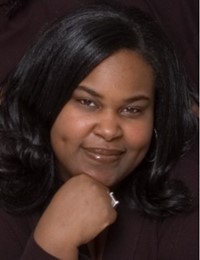Renee Watson


About Author
Renee Watson is the Newbery Honor and Coretta Scott King Author Award-winning author of the novels Piecing Me Together, What Momma Left Me and Watch Us Rise, co-written with Ellen Hagan.
Renee is the founder of I, Too Arts Collective, a non-profit committed to nurturing under-represented voices in the creative arts.
She lives in New York City.
reneewatson.net
@harlemportland (Instagram)
@reneewauthor (Twitter)
Interview
WAYS TO MAKE SUNSHINE
BLOOMSBURY CHILDREN'S BOOKS
AUGUST 2020
RENEE WATSON, who is well known for her writing for young adult readers, is writing a new series of middle grade books featuring Ryan Hart and her family, with all the ups and downs of their lives.
WAYS TO MAKE SUNSHINE features an ordinary black family trying to get through tough economic times. In this book, Ryan's unemployed father has found a new job, but it pays less than the old one so they have to move and sell one of their cars. While Ryan has a lot on her mind, she still finds ways to make sunshine through the gloom.
RENEE WATSON tells us about writing for younger readers, and gives us some great writing and editing tips:
Q: You're well known for your young adult books, so what was the transition like to writing middle grade fiction?
A: There are some challenges transitioning between YA, MG, and chapter books, especially when thinking about how children talk versus how teens talk.
But mostly, it's been really fun to write for a younger audience. There's a curiosity that is so pure at this age. Imagination and play are still encouraged and so the characters in Some Places More Than Others and Ways to Make Sunshine experiment and explore in ways that look very different from my teen characters.
Q: Is Ways to Make Sunshine a stand-alone story, or will you be revisiting Ryan and her family?
A: I am working on book two in the Ryan Hart series. I'm picking things up where Ways To Make Sunshine left off - Ryan has a new baby sister and that's bringing a lot of change into her world. Some of it good, some of it not so good.
Q: Can you tell us a bit about your writing process - paper or computer, and how do you edit your work?
A: I always start my first drafts by handwriting in my journal. There's something about pen to paper for me that makes me feel more connected to my characters. It also makes me slow down.
Once I feel like there's a story to tell, I move over to my computer and type out of the rest. A lot of times, when I'm stuck in the middle of a draft, I go back to handwriting and that usually helps to get me unstuck.
My revision process usually includes sharing drafts with trusted readers who will give me feedback. I ask them: What do you want more of? and What questions do you have? These questions help me go deeper when I go back to revise.
When I'm in the final stages of revision, I use Post-It Notes and storyboard the major scenes in each chapter. I stick them to the wall in my office space and then I can see the full story. I take a different color of Post-Its and fill in the gaps, marking where new scenes need to be added. This helps me see where the story is going and where I need to add more. It also gives me a clear checklist for the next round of revising.
Q: You also do work within social justice education, can you tell us more about that?
A: My work with social justice education explores how art can be a form of activism and resistance. I try to create spaces where young people are celebrating and critiquing their worlds, making art in response to injustice, and raising their voices.
As educators, to ensure that our work is valid and promising, we need to make sure the curriculum is culturally relevant and diverse. Knowing the life skills our students will need to be successful citizens of the world, I believe it is important to provide learning opportunities where students can practice empathy, listening, cooperation, collaboration, and sharing. These can seem like simple words, but I believe they are vital attributes of an equitable society.
Two resources I turn to time and time again are Rethinking Schools and Teaching Tolerance. They have so much to offer teachers of all subjects and grade levels.
Q: What advice would you give to young aspiring writers?
A: I encourage young writers to read, read, read. If there's a book you love, read it again and figure out what the author did to make you love that book.
How did they end the chapters? What made you want to keep turning the page? Whatever your answer is, try to emulate that in your own work.
I also think it's important to be a good listener. Good writers pay attention to what's going on around them, they are observers. To be a strong writer, I think you have to talk less and listen more.
Q: What are your favourite escapes from writing?
A: I enjoy down time with my family. We love taking road trips, going to the movies, and family dinners. I also try to take the in other types of art, like going to plays, live music venues, museums.
When I'm not writing, I try to "fill the well".
 Ways to Make Sunshine
Ways to Make Sunshine
 Watch Us Rise
Watch Us Rise
 Some Places More Than Others
Some Places More Than Others
